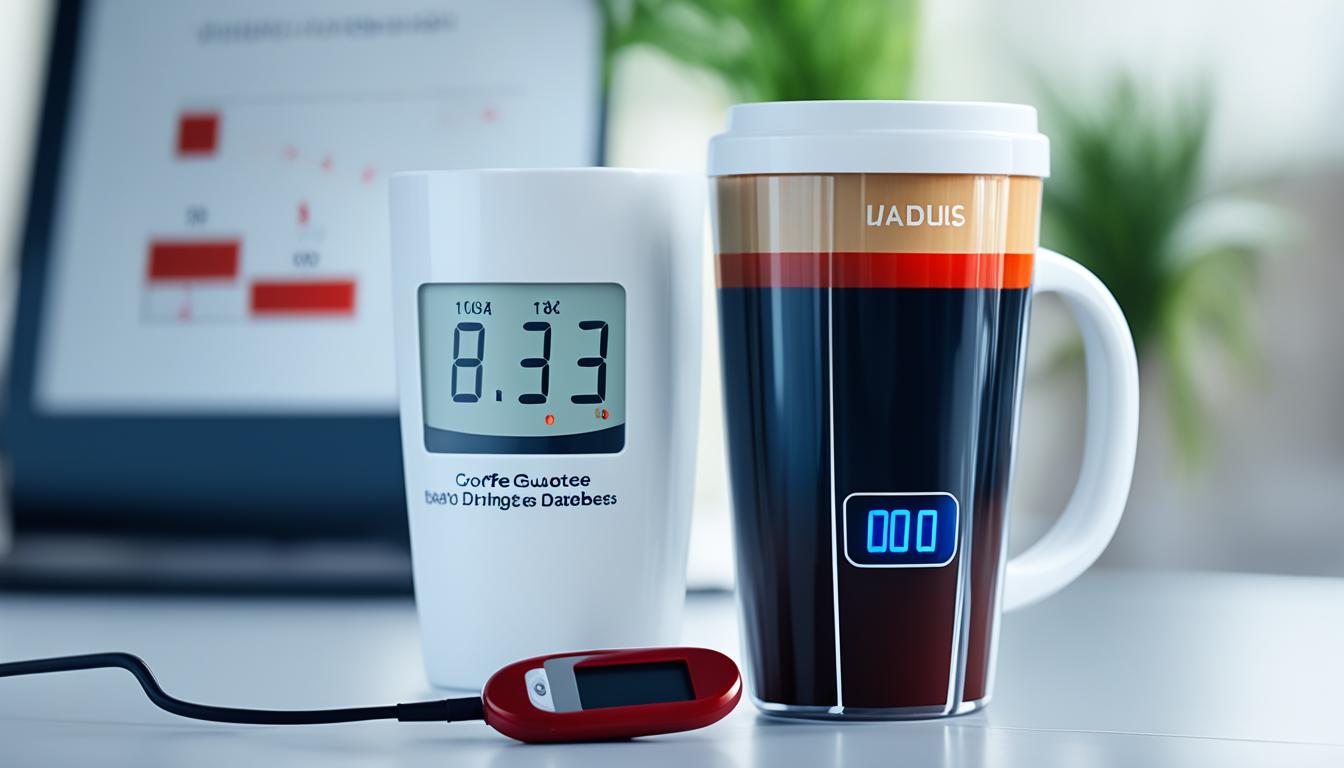Welcome to our article on coffee allergies and sensitivities. While allergies to coffee are very rare, it’s important to understand the difference between a coffee allergy, caffeine sensitivity, and coffee intolerance. We’ll explore the symptoms, causes, and management strategies for each condition, so you can make informed choices about your coffee consumption.
Key Takeaways:
- Coffee allergies are rare, but allergic reactions to coffee can occur. Symptoms may include skin rashes, nausea, and shortness of breath.
- Caffeine sensitivity is characterized by an overreaction to caffeine and may cause symptoms like jitteriness, upset stomach, and elevated heart rate.
- Coffee intolerance can result from ingredients like dairy or sweeteners in coffee and can cause allergic reactions or intolerances in some people.
- Seek medical attention for a proper diagnosis if you suspect a coffee allergy or sensitivity. Doctors can provide guidance on managing these conditions.
- For those with coffee sensitivities, alternative options like herbal tea or coffee substitutes made from chicory can be enjoyed without caffeine-related symptoms.
Symptoms of Coffee Allergies and Sensitivities
Symptoms of a coffee allergy can be severe and affect different areas of the body. These symptoms may include:
- Skin rashes
- Nausea and vomiting
- Trouble swallowing
- Shortness of breath
- Wheezing cough
- Stomach or abdominal cramps
- Diarrhea
- Reduced color in the skin
- Weak pulse or sudden drop in blood pressure
- Dizziness or loss of consciousness
Severe allergic reactions may lead to anaphylaxis, which can be life-threatening if left untreated.
On the other hand, symptoms of coffee sensitivity may include:
- Feelings of jitteriness and unease
- Irritability
- Anxiety or nervousness
- Trouble sleeping or insomnia
- Upset stomach
- Abdominal cramps
- Elevated heartbeat or blood pressure
- Involuntary muscle spasms
In order to effectively manage coffee allergies and sensitivities, it is important to understand the symptoms associated with each condition. While coffee allergies pose more serious health risks and require immediate medical attention, coffee sensitivities can cause discomfort and impact daily life. By recognizing these symptoms, individuals can make informed decisions about their coffee consumption and seek appropriate medical advice to manage their condition.
Caffeine Sensitivity vs. Allergy Symptoms
When it comes to coffee, it is crucial to understand the difference between caffeine sensitivity and a coffee allergy. While symptoms can overlap, distinguishing between the two can help individuals manage their reactions effectively.
Caffeine sensitivity refers to an exaggerated response to caffeine consumption. This condition may result in a range of symptoms, including:
- Chest pain
- Heart palpitations
- Mood swings
- Numbness in the extremities
- Muscle pains
- Shortness of breath
- Headaches or migraines
- Delusions or hallucinations
- Cold sweats
- Flu-like symptoms
- Panic attacks
While some of these symptoms can overlap with a coffee allergy, it is important to note that caffeine sensitivity is typically not life-threatening.
On the other hand, it is very rare to be allergic to caffeine itself. However, a coffee allergy can produce similar symptoms to caffeine sensitivity. If someone experiences any of the following symptoms after consuming coffee, it might be an allergic reaction to coffee:
- Skin rashes
- Nausea and vomiting
- Trouble swallowing
- Shortness of breath
- Wheezing cough
- Stomach or abdominal cramps
- Diarrhea
- Reduced color in the skin
- Weak pulse or sudden drop in blood pressure
- Dizziness or loss of consciousness
While severe allergic reactions can be life-threatening, it is important to remember that caffeine sensitivity is usually not as severe as a coffee allergy.
Other Factors and Ingredients
In addition to coffee itself, there are other factors and ingredients that can contribute to allergic reactions or sensitivities. These include:
- Cross-reactivity with coffee: Some individuals may experience cross-reactivity between coffee and other allergens. This means that the proteins in coffee can trigger an immune response similar to that of other allergens, resulting in allergic symptoms.
- Allergic to coffee ingredients: Coffee can contain various ingredients that may cause allergic reactions or intolerances in certain individuals. These ingredients can include:
| Ingredient | Allergic Reactions |
|---|---|
| Dairy | Common allergen that can cause symptoms such as skin rashes, digestive issues, and respiratory problems. |
| Sweeteners | Artificial sweeteners, such as aspartame, may trigger allergic reactions in some people, resulting in symptoms like hives, swelling, or difficulty breathing. |
| Flavored syrups | These syrups often contain additional ingredients such as artificial flavors or preservatives, which can lead to allergic reactions or intolerances in sensitive individuals. |
To avoid these potential triggers, individuals who are allergic to coffee ingredients or experience cross-reactivity should carefully read labels and choose alternative coffee options that do not contain these substances.

Diagnosing and Managing Coffee Allergies and Sensitivities
If you suspect that you have a coffee allergy or sensitivity, it is crucial to seek medical attention for a proper diagnosis. Consulting with a doctor can help determine the specific cause of your allergic reaction or sensitivity and provide guidance on effective management strategies.
To diagnose coffee allergies, doctors may conduct tests such as skin prick tests or blood tests to identify specific allergens. You may also be asked to keep a food journal to track your symptoms and identify patterns of coffee consumption and allergic reactions. Avoiding exposure to coffee and all its forms is typically recommended to manage coffee allergies effectively.
For those with caffeine sensitivity, which is different from a coffee allergy, the management approach revolves around limiting or avoiding caffeine consumption altogether. This may involve switching to decaffeinated alternatives or exploring other non-caffeinated beverages.
Reading food and beverage labels carefully is essential for identifying hidden sources of caffeine or other potential allergens. This helps you navigate the vast array of products available in the market and make informed choices that align with your allergy or sensitivity management plan.
To summarize the steps in managing coffee allergies and sensitivities:
- Seek medical attention for a proper diagnosis
- Conduct necessary tests and keep a food journal to track symptoms
- Avoid exposure to coffee and caffeinated products for coffee allergies
- Limit or avoid caffeine consumption for caffeine sensitivity
- Read food and beverage labels diligently
| Diagnosing Coffee Allergies | Managing Coffee Allergies | Managing Caffeine Sensitivity |
|---|---|---|
| Seek medical attention | Avoid exposure to coffee and all its forms | Limit or avoid caffeine consumption |
| Conduct tests and keep a food journal | Read food and beverage labels carefully | Explore decaffeinated alternatives |
By following these steps and working closely with medical professionals, you can effectively diagnose and manage coffee allergies and sensitivities. Keep in mind that everyone’s body responds differently to caffeine, so it’s crucial to listen to your body and adjust your coffee consumption accordingly.
Caffeine Sensitivity vs. Caffeine Allergy
Caffeine sensitivity and caffeine allergy are two distinct conditions. While caffeine sensitivity is characterized by an overreaction to the effects of caffeine, caffeine allergy involves an abnormal immune response to caffeine itself.
Caffeine sensitivity is diagnosed by excluding other possible causes and is managed by avoiding caffeine. On the other hand, caffeine allergy is diagnosed with allergy tests and is also treated with avoidance of caffeine as well as antihistamines.
It is essential to differentiate between caffeine sensitivity and caffeine allergy to understand the appropriate management approach. Let’s take a closer look at each condition:
Caffeine Sensitivity
In the case of caffeine sensitivity, individuals experience an exaggerated response to caffeine consumption. Symptoms can vary but often include:
- Frequent urination
- Stomach upset and irritation
- Insomnia or difficulty sleeping
- Jitteriness or restlessness
- Headaches
- Increased heart rate or palpitations
Individuals with caffeine sensitivity may need to limit or avoid caffeine intake to prevent discomfort and adverse effects.
Caffeine Allergy
Unlike sensitivity, caffeine allergy is an immune response to caffeine itself. Common symptoms of caffeine allergy include:
- Skin rashes or hives
- Itchy or watery eyes
- Swelling of the lips, tongue, or throat
- Difficulty breathing
- Nausea and vomiting
“I experienced severe skin rashes and difficulty breathing after consuming a small amount of coffee. It was terrifying, but a diagnosis of caffeine allergy helped me understand how to manage my condition and avoid potential risks.” – Emily, a caffeine allergy patient.
If you suspect you have caffeine sensitivity or caffeine allergy, consult with a healthcare professional for appropriate diagnosis and guidance.
Now, let’s summarize the key differences between caffeine sensitivity and caffeine allergy in the table below:
| Caffeine Sensitivity | Caffeine Allergy |
|---|---|
| Exaggerated response to caffeine | Abnormal immune response to caffeine |
| Managed by avoiding caffeine | Treated with caffeine avoidance and antihistamines |
| Causes discomfort and adverse effects | Can lead to severe allergic reactions |
| Symptoms include stomach upset, insomnia, and increased heart rate | Symptoms include skin rashes, difficulty breathing, and swelling |
Understanding the differences between caffeine sensitivity and caffeine allergy is crucial for effective management and avoiding potential risks. Consult with a healthcare professional for proper diagnosis and personalized advice.

Coping with Coffee Sensitivities
For those of us who experience coffee sensitivities, there’s good news! There are alternative options available that can help us still enjoy a hot and comforting beverage without the unpleasant side effects. Whether it’s the caffeine itself or other components in coffee that cause discomfort, managing coffee sensitivities is all about finding suitable substitutes to satisfy our cravings.
Exploring Tea Options
One popular switch for coffee lovers with sensitivities is tea. Herbal teas or decaffeinated varieties can provide a warm and soothing experience, minus the caffeine jitters. The gentle flavors of herbal blends like chamomile, mint, or lavender can offer a calming alternative to the bold taste of coffee. Additionally, decaffeinated tea options such as green tea or black tea can provide a milder stimulation without the caffeine overload.
Discovering Coffee Substitutes
If you’re looking to replicate the taste and aroma of coffee, there are substitutes available made from chicory or roasted grains. These coffee alternatives offer a rich and robust flavor that can be enjoyed without the undesirable effects. Chicory-based drinks have been used as a coffee replacement for centuries and are known for their dark and earthy profile. Similarly, powdered mixtures made from roasted grains can provide a familiar coffee-like experience, making them popular choices among those seeking caffeine-free options.
Embracing Non-Caffeinated Herbal Teas
For individuals looking to completely eliminate caffeine from their daily routine, non-caffeinated herbal teas can be a perfect choice. These teas are made from a variety of plants and herbs and offer a range of flavors and health benefits. From fruity blends like hibiscus or berry-infused teas to refreshing mint or ginger options, there’s a wide selection of caffeine-free herbal teas to explore. These alternatives can quench your thirst and provide a comforting beverage without the stimulating effects of coffee.
Remember, it’s crucial to find alternatives that not only have a similar flavor and experience to coffee but also do not trigger any unpleasant symptoms. By experimenting with different options, you can find the perfect substitute that caters to your coffee sensitivities while still satisfying your cravings for a hot and flavorful drink.
Conclusion
Coffee allergies and sensitivities are relatively rare, with the majority of people being able to enjoy coffee without any adverse reactions. However, for those who do experience symptoms such as skin rashes, nausea, or shortness of breath, it is important to consult a healthcare professional to determine the underlying cause and find appropriate management strategies.
By understanding the difference between coffee allergies, sensitivities, and caffeine intolerance, individuals can make informed choices about their coffee consumption. It is crucial to listen to your body and adjust your caffeine intake accordingly, as everyone’s sensitivity to caffeine varies. If you suspect you have a coffee allergy or sensitivity, it is always best to seek medical advice for accurate diagnosis and guidance on managing your condition.
For individuals with coffee allergies or sensitivities, there are alternative options available. Switching to tea, either herbal or decaffeinated, can provide a similar flavor and experience without the adverse reactions. Coffee substitutes made from chicory or roasted grains can also be an excellent choice for those looking for coffee-like alternatives. Non-caffeinated herbal teas can also be a suitable replacement for coffee, satisfying the taste buds without causing symptoms.
In summary, while coffee allergies and sensitivities are uncommon, it is essential to prioritize your health and well-being. By working closely with a healthcare professional, understanding your body’s reactions, and exploring alternative options, you can still enjoy your daily cup of joe without compromising your health.
FAQ
What are the symptoms of coffee allergies?
Symptoms of coffee allergies can include skin rashes, nausea, and shortness of breath. In severe cases, allergic reactions may lead to anaphylaxis, which can be life-threatening.
How do I differentiate between coffee allergies and caffeine sensitivity?
Coffee allergies can cause severe symptoms such as skin rashes, nausea, and difficulty breathing. Caffeine sensitivity, on the other hand, may result in feelings of jitteriness, irritability, upset stomach, and elevated heart rate.
Can factors other than coffee beans cause allergic reactions?
Yes, contact with dust from green coffee beans before roasting or the presence of mycotoxins from fungi on the beans can also trigger allergic reactions. Additionally, other ingredients in coffee, such as dairy, sweeteners, or flavored syrups, can cause allergies or intolerances in some individuals.
How can coffee allergies and sensitivities be diagnosed and managed?
If you suspect a coffee allergy or sensitivity, it is important to seek medical attention for a proper diagnosis. Doctors can conduct tests and provide guidance on managing symptoms. This may involve avoiding coffee and keeping a food journal to track reactions. Caffeine sensitivity can be managed by limiting or avoiding caffeine consumption altogether.
What is the difference between caffeine sensitivity and caffeine allergy?
Caffeine sensitivity involves an overreaction to the effects of caffeine, while caffeine allergy is an abnormal immune response to caffeine itself. Caffeine sensitivity is diagnosed by excluding other causes and is managed by avoiding caffeine. Caffeine allergy is diagnosed with allergy tests and is also treated with avoidance of caffeine and antihistamines.
Are there alternatives for individuals with coffee sensitivities?
Yes, alternatives for coffee include herbal or decaffeinated teas, coffee substitutes made from chicory or roasted grains, and non-caffeinated herbal teas. These options can provide a similar flavor and experience to coffee without causing symptoms.




